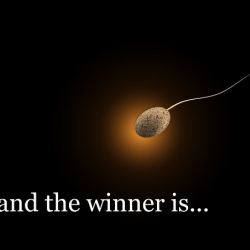Is it possible that our children inherit more from us than genes and a home? There is a growing body of literature demonstrating the intuitive connection between a mother’s health during pregnancy and the health of their children, but little on what effect the father may play. A study from the Proceedings of the National Academy of Science uses data on civil war veterans to begin to pry open the door to those answers.
Transferring Paternal Health
At first blush, it would seem that the Civil War fought nearly 160 years ago would generate usable data, but they are to be found – you can judge their consistency and veracity for yourself; for the sake of today, let’s take them as a given. The researchers look at Union soldiers who were not prisoners of war (POW) as well as POWs in two time periods. The first, from the beginning of the war till July of 1863, when POWs were freely exchanged between the sides. In the second period, POWs were not exchanged as negotiations broke down and as their number increased they suffered significant food shortages. For example, Union records indicated symptoms of scurvy in about 11% of all soldiers, rising to 14% for those soldiers captured before July 1863 increasing to 23% when exchanges were halted and dropping again to 14% when prisoner exchanges were resumed before the end of the war. They had data on all three groups' families; about 2,500 children for the approximately 700 soldiers that were POWs during the exchange or no-exchange period, and 15,000 children for the 5,000 non-POW Union soldiers that were the control.
- At the age of 45, sons of no-exchange POWs 11% more likely to die than the non-POW prisoners and about 9% more likely to die than sons on POWs during the exchange period.
- Sons of non-POWs and exchange POWs were statistically indistinguishable
- Paternal status had no impact of daughters
- Within families, the impact on sons was even greater, sons born after the war to non-exchange POWs died 2.23 fold more quickly than sons of the same father born before the war.
- Paternal POW status had no impact on the son’s socioeconomic status or the family structure.
- The excess mortality found in the POW sons was mainly from a cerebral hemorrhage and perhaps marginally from cancer. There were no excess deaths attributable to suicide or accidents among the sons, although the data here is very limited.
Using a “proof by elimination” methodology, the researchers felt that the increase in POWs sons mortality was neither due to socioeconomics or that traits of the father that permitted survival had a deleterious effect on the sons. Marital quality, measured by the wealth of the wife, was not impacted and there was no direct evidence of pathopsychological impacts - the PTSD that haunts many of today’s veterans. They concluded that the effect they identified was a sex-specific transmission of epigenetic effects and cited a similar small study from Sweden that correlated food shortages with epigenetic influences on the mortality of sons, not daughters.
I will admit that my interest in reproduction stresses delivery over other factors, I thought sperm was along for the ride. As can often be the case, there is more to sperm and their journey than I was aware.
Sperm’s Silk Road Adventure
Sperm, those little swimmers are produced in the testes but are not fully motile until they have transversed the epididymis, a very coiled tube, that no one thinks about until it gets infected, a disease called epididymitis, and then it quickly rises to the top of their attention. After about a two week period of wandering about, sperm is stored for the big event. It turns out that during that same two-week road trip sperm are making some epigenetic changes, altering which genes are turned on and off through a group of molecules called small RNA. And these small RNA are being swapped back and forth by the sperm; perhaps the epididymis should be thought of as the Silk Road, a road trip through exotic lands with lots of bartering. Further investigation has uncovered that the sperm unleashes their original small RNA cargo early in the epididymal journey and pick up new small RNA from the epididymal cells themselves – the cells lining and forming the epididymis were getting information on the father’s health and incorporating it into the newly vacated areas of the sperm genome. Now why this happens is anyone’s guess, but it is clear that while each sperm has the same genetics, their epigenetic differ and those differences occur along the epididymis.
Could sperm’s epididymal journey help explain how paternal nutrition may alter the lives of their sons?
Sources: Intergenerational Transmissions of Paternal Trauma among US Civil War ex-POWs
Proceedings of the National Academy of Sciences DOI:10.1073/PNAS.1803630115
Dads Pass On More Than Genetics in Their Sperm Smithsonian.com
Small RNAs Gained during Epididymal Transit of Sperm Are Essential for Embryonic Development in Mice Developmental Cell DOI: 10.1016/j.devcel.2018.06.024
Small RNAs are trafficked from the epididymis to developing mammalian sperm Developmental Cell DOI: 10.1016/j.devcel.2018.06.023

